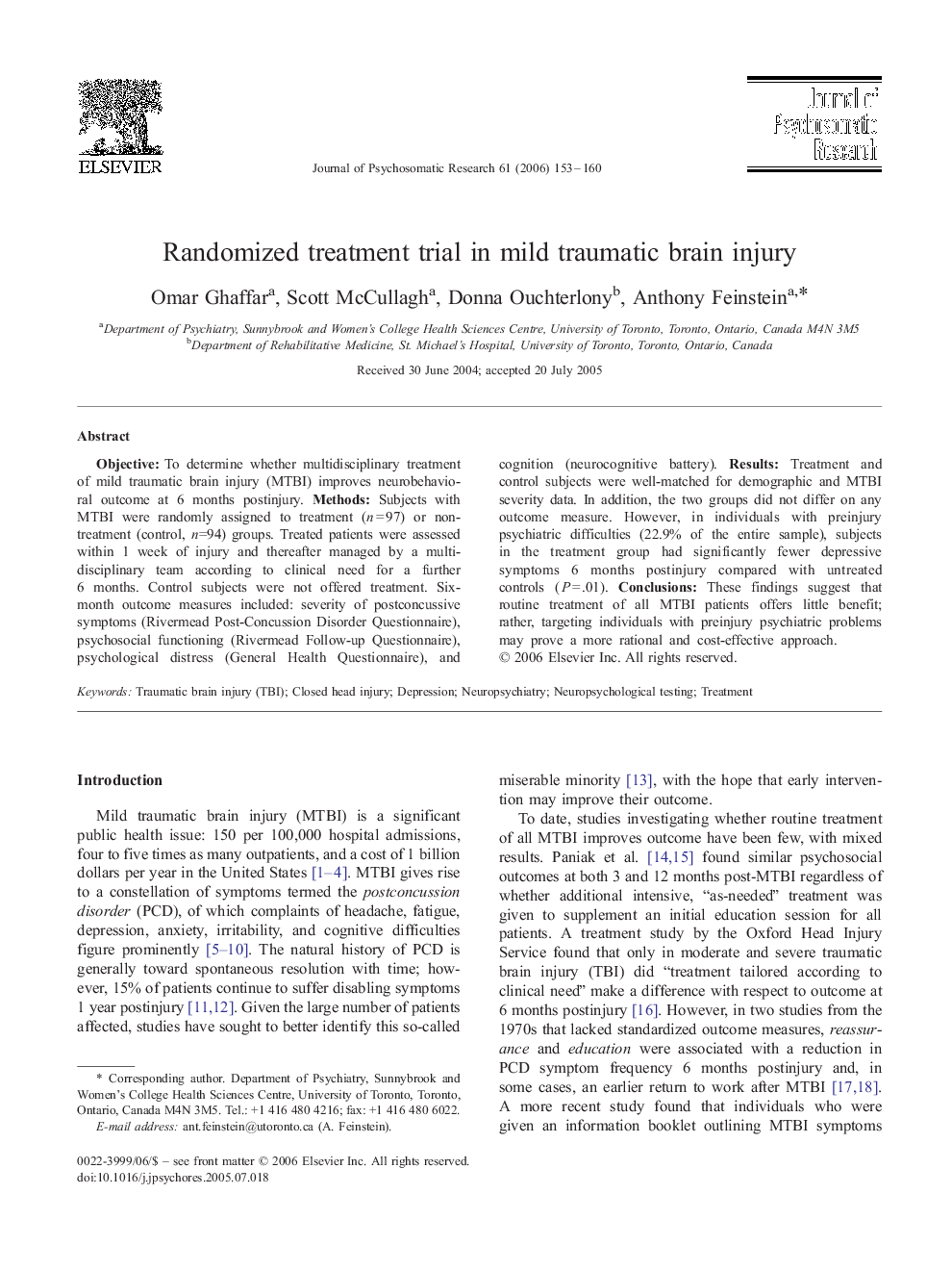| Article ID | Journal | Published Year | Pages | File Type |
|---|---|---|---|---|
| 950740 | Journal of Psychosomatic Research | 2006 | 8 Pages |
ObjectiveTo determine whether multidisciplinary treatment of mild traumatic brain injury (MTBI) improves neurobehavioral outcome at 6 months postinjury.MethodsSubjects with MTBI were randomly assigned to treatment (n=97) or nontreatment (control, n=94) groups. Treated patients were assessed within 1 week of injury and thereafter managed by a multidisciplinary team according to clinical need for a further 6 months. Control subjects were not offered treatment. Six-month outcome measures included: severity of postconcussive symptoms (Rivermead Post-Concussion Disorder Questionnaire), psychosocial functioning (Rivermead Follow-up Questionnaire), psychological distress (General Health Questionnaire), and cognition (neurocognitive battery).ResultsTreatment and control subjects were well-matched for demographic and MTBI severity data. In addition, the two groups did not differ on any outcome measure. However, in individuals with preinjury psychiatric difficulties (22.9% of the entire sample), subjects in the treatment group had significantly fewer depressive symptoms 6 months postinjury compared with untreated controls (P=.01).ConclusionsThese findings suggest that routine treatment of all MTBI patients offers little benefit; rather, targeting individuals with preinjury psychiatric problems may prove a more rational and cost-effective approach.
